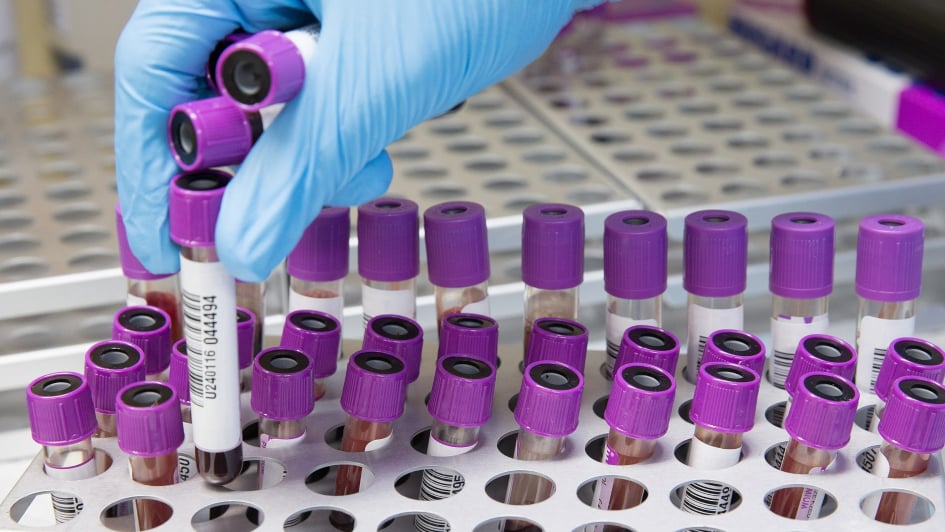The success of these therapies have been seen in lung cancer, certain leukemias, colorectal cancer, certain lymphomas and melanoma.
Many of the cancer drugs you see advertised on TV that end in man as in nivolumab (Opdivo), or bevacizumab (Avastin) are targeted therapies.
As successful as these drugs have been, knowing the precise gene mutation that may be driving your cancer has been a bit of guess work for oncologists, until now.
The results of a new study, called plasmaMATCH should provide your oncologist with better information about your tumor that will allow them to recommend the best targeted therapy for you. The study results appeared online this week ahead of publication in Lancet Oncology.
In the study the researchers took blood samples from more than 1,000 women with breast cancer that had recurred after treatment or had spread to other parts of the body. The researchers looked for three targetable defects in genes called HER2, AKT1 and ESR1.
A total of 142 of the women were then given drugs targeted against their specific defect. Women with ESR1 were treated with fulvestrant (Faslodex), women with HER2 mutations were treated with neratinib (Nerlynx) or Nerlynx and Fasolodex, and women with AKT1 mutations were split between those with estrogen positive cancer and estrogen negative cancer. Those who were positive were treated with capivasertib plus fulvestrant, and those who were negative were treated with capivasertib alone.
They found that a quarter of the women with HER2 mutations had a beneficial response to Nerlynx, while the women with ESR1 mutation had no benefit from Faslodex.
These results show the researchers that matching the targeted therapy based on the blood samples could lead to better results and less use of ineffective treatments by better matching the targeted therapies to the specific genetic defects of the tumor.
"Our findings show that simple blood tests can quickly and accurately tell us the genetic changes present in a patient's cancer, and use that information to select the most suitable available treatment, the studies lead author Professor Nick Turner said in a press release."Using a liquid biopsy could be particularly important for patients with advanced breast cancer, to help select the most appropriate treatment
Larger trials will be needed to develop this more targeted therapies.
Source: The Institute of Cancer Research press release
As successful as these drugs have been, knowing the precise gene mutation that may be driving your cancer has been a bit of guess work for oncologists, until now.
The results of a new study, called plasmaMATCH should provide your oncologist with better information about your tumor that will allow them to recommend the best targeted therapy for you. The study results appeared online this week ahead of publication in Lancet Oncology.
In the study the researchers took blood samples from more than 1,000 women with breast cancer that had recurred after treatment or had spread to other parts of the body. The researchers looked for three targetable defects in genes called HER2, AKT1 and ESR1.
A total of 142 of the women were then given drugs targeted against their specific defect. Women with ESR1 were treated with fulvestrant (Faslodex), women with HER2 mutations were treated with neratinib (Nerlynx) or Nerlynx and Fasolodex, and women with AKT1 mutations were split between those with estrogen positive cancer and estrogen negative cancer. Those who were positive were treated with capivasertib plus fulvestrant, and those who were negative were treated with capivasertib alone.
They found that a quarter of the women with HER2 mutations had a beneficial response to Nerlynx, while the women with ESR1 mutation had no benefit from Faslodex.
These results show the researchers that matching the targeted therapy based on the blood samples could lead to better results and less use of ineffective treatments by better matching the targeted therapies to the specific genetic defects of the tumor.
"Our findings show that simple blood tests can quickly and accurately tell us the genetic changes present in a patient's cancer, and use that information to select the most suitable available treatment, the studies lead author Professor Nick Turner said in a press release."Using a liquid biopsy could be particularly important for patients with advanced breast cancer, to help select the most appropriate treatment
Larger trials will be needed to develop this more targeted therapies.
Source: The Institute of Cancer Research press release



No comments:
Post a Comment